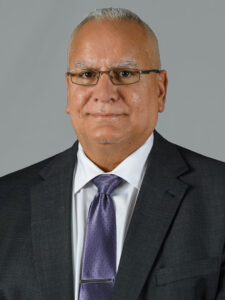Answering Your Estate Planning Questions
1. What is an estate plan?
An estate plan is a set of directions that you leave for your family and loved ones directing them what to do in the event of your death or incapacity. An estate plan consists of various documents executed by you during your lifetime. Many estate plans include Wills, Trusts, Health Care Proxies, Living Wills and Powers of Attorney.
2. What happens if I die without a Will?
If you die without a Will, the intestacy laws of the Commonwealth of Massachusetts will determine who inherits your assets. If you die without a Will, you are said to have died intestate.
3. What is probate?
Probate is a formal court proceeding required by the Commonwealth of Massachusetts in order to legally determine who is entitled to inherit your property. The purpose of a probate proceeding is to prove that the deceased’s will is valid and that it was executed in accordance with the laws of Massachusetts. Once the will has been declared valid by the probate court, the court will appoint the executor and issue a certificate of appointment. The executor can then use the certificate of appointment to liquidate the deceased’s assets.
4. How is a Living Will different from a Will?
A Living Will concerns your health care. It is a statement that you do not want your death artificially prolonged if you have a terminal illness or injury, your death is imminent and the medical treatment you are receiving is prolonging the dying process. In that event you wish to be removed from life support except for medication to alleviate pain and suffering. In Massachusetts, a Living Will works in conjunction with a Health Care Proxy. The Living Will provides guidance to your Health Care Agent if your Health Care Agent is ever called upon to make a life or death decision. In Massachusetts, the Health Care Proxy is the mort important document as the ability to create it is found in the Massachusetts statutes.
A Will or Last Will & Testament is a person’s written declaration of how he wants his assets distributed after his death. The laws surrounding the validity of Wills are unique to each state. Therefore, a Will must be executed in accordance with the laws of the state in which it was executed.
5. Is a Living Will the same thing as a Do Not Resuscitate order?
No, in Massachusetts a Living Will provides guidance to the individual you have named as your Health Care Agent. It tells the Health Care Agent what you would want him to do in the event he was called upon to determine whether or not life support should be terminated. It is used only if you are incapacitated and unable to make decisions for yourself. A Do Not Resuscitate order is typically put in place by you during your lifetime with the help of your primary care physician.
In order to put a Do Not Resuscitate order in place first you must speak to your primary care physician to verbally give the order to the physician. Then your physician will have you fill out a Comfort Care/Do Not Resuscitate Order Verification form. Once signed, you should make many copies of the form to hand out to all of your health care professionals. You should also keep a copy on your refrigerator at home. That way if EMT’s are ever called to your home the form will be readily available. In Massachusetts that form is the only document that the ambulance services and their EMT’s will recognize and abide by. Without that form, the EMT’s will need to resuscitate and transport. Additional information on this topic can be found at the Department of Public Health’s website www.mass.gov/dph/oems.
6. Can my power of attorney act even after my death?
No, once you have died and the person you have named as your attorney has notice of your death, the power of attorney is no longer valid. It dies with you. Upon your death, your assets then become part of your estate and are distributed in accordance with your will.
7. What does a trust do?
Despite what you may hear at cocktail parties, trusts are not the panacea of the estate planning world. One trust does not solve all of your estate planning problems. What is written in the trust — the terms of the trust — will dictate the purpose of the trust and how the trust is to be administered. Some trusts are drafted to minimize estate tax planning. Other trusts are written to provide administration of trust assets for minor beneficiaries until they reach certain ages, such as age 25 and 30. If you have an existing trust and you are uncertain of the purpose of the trust, you should have it reviewed by an estate planning attorney.
8. Where should I keep my Will and other estate planning documents?
Your estate planning documents should not be kept in a safe deposit box because then the authority to get into the box is inside the box. Many clients choose to keep their estate planning documents either in a fire proof box in their home or in a desk or file cabinet in their home office. In addition, you should inform your loved ones that you have executed the documents. Finally your attorney’s office will usually keep a set of copies of the executed documents.
9. Can I make changes to my estate planning documents?
Yes, you can make changes to your Will either by executing a new Will or by executing a Codicil to your Last Will & Testament. Do not simply handwrite changes to an existing Will. In most instances the handwritten changes will not be recognized as valid and may result in extra legal costs to probate the Will. They may also lead to disputes between heirs.
A trust can be changed by a simple amendment to the trust or, in the case of many changes, by amending and restating the entire trust document.
10. How much does an estate plan cost?
Many attorneys charge a flat fee for estate planning. At Kajko, Weisman & Colasanti, LLP, there is generally no charge for the initial consultations. After the initial consultation a fee agreement based upon that meeting is sent to the client. At that point the client can retain our office to do the legal work.
If you have any additional questions, we invite you to contact us to schedule an initial consultation.




